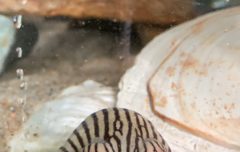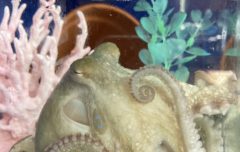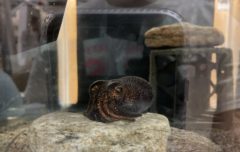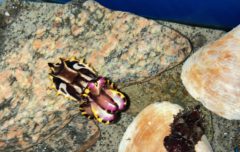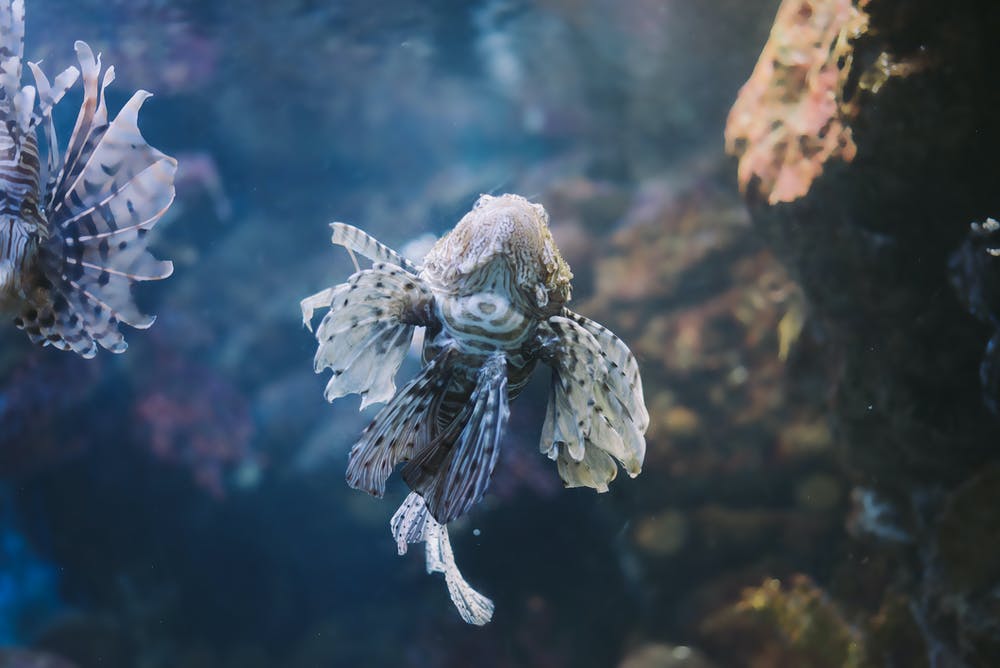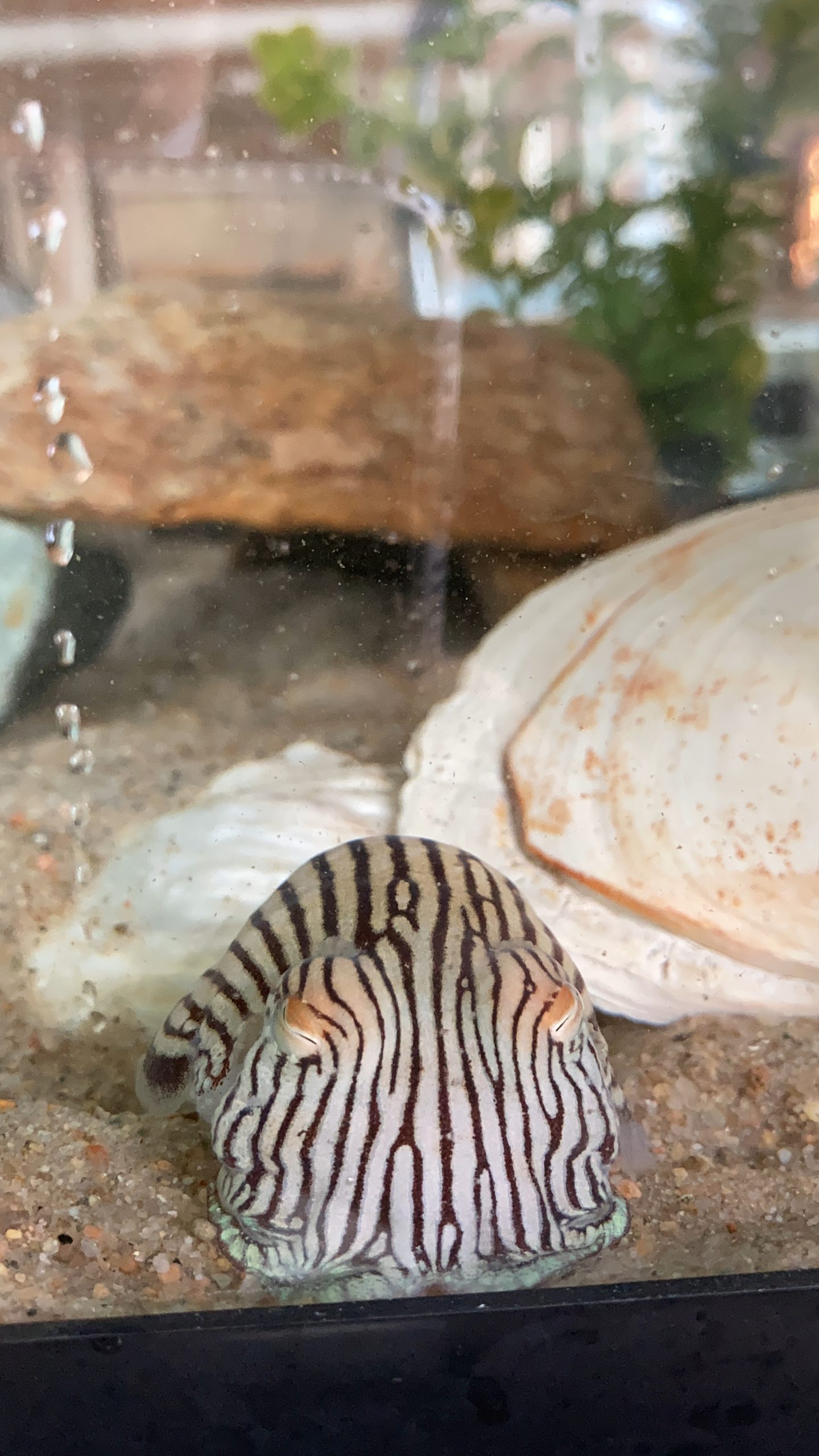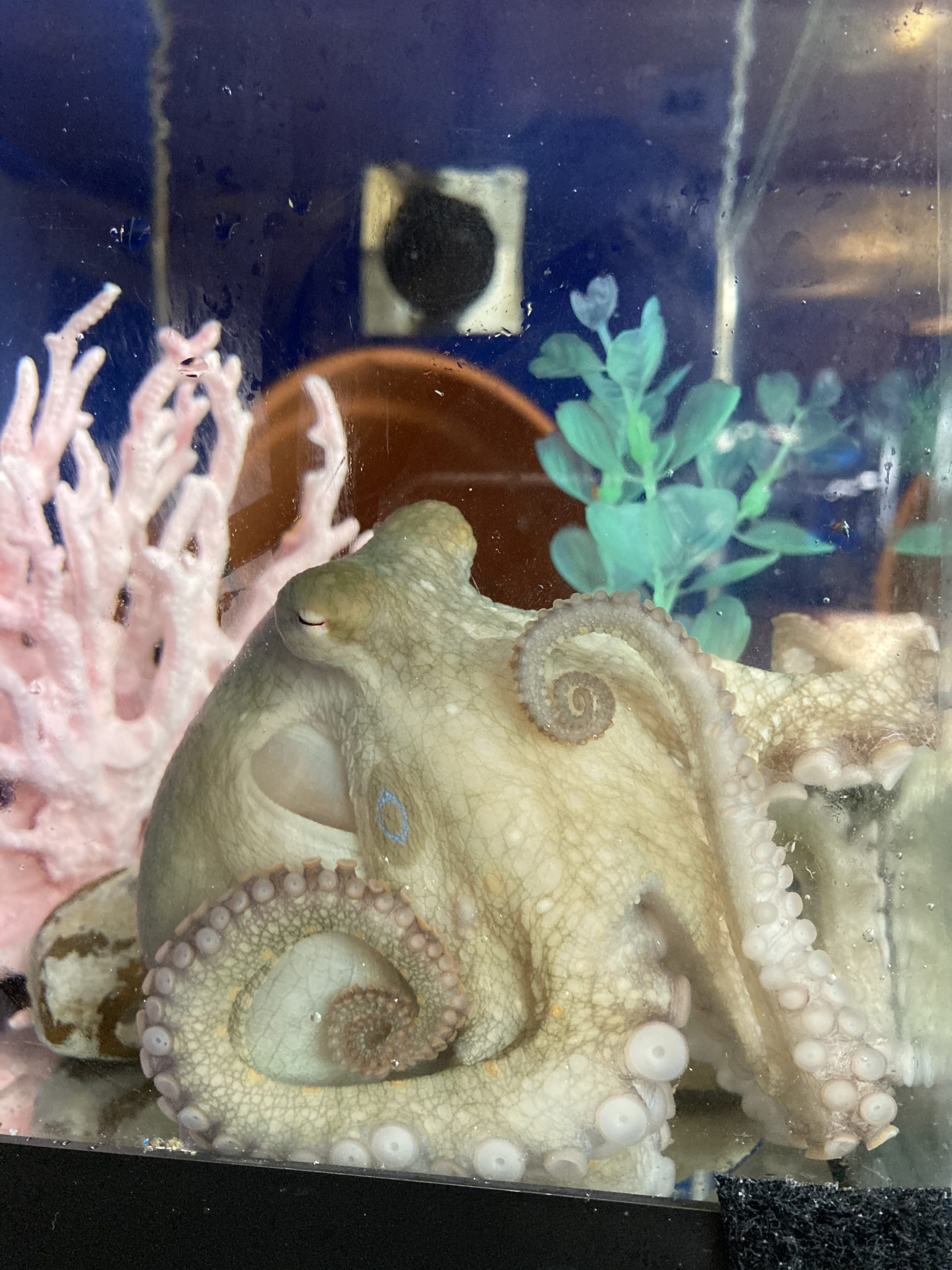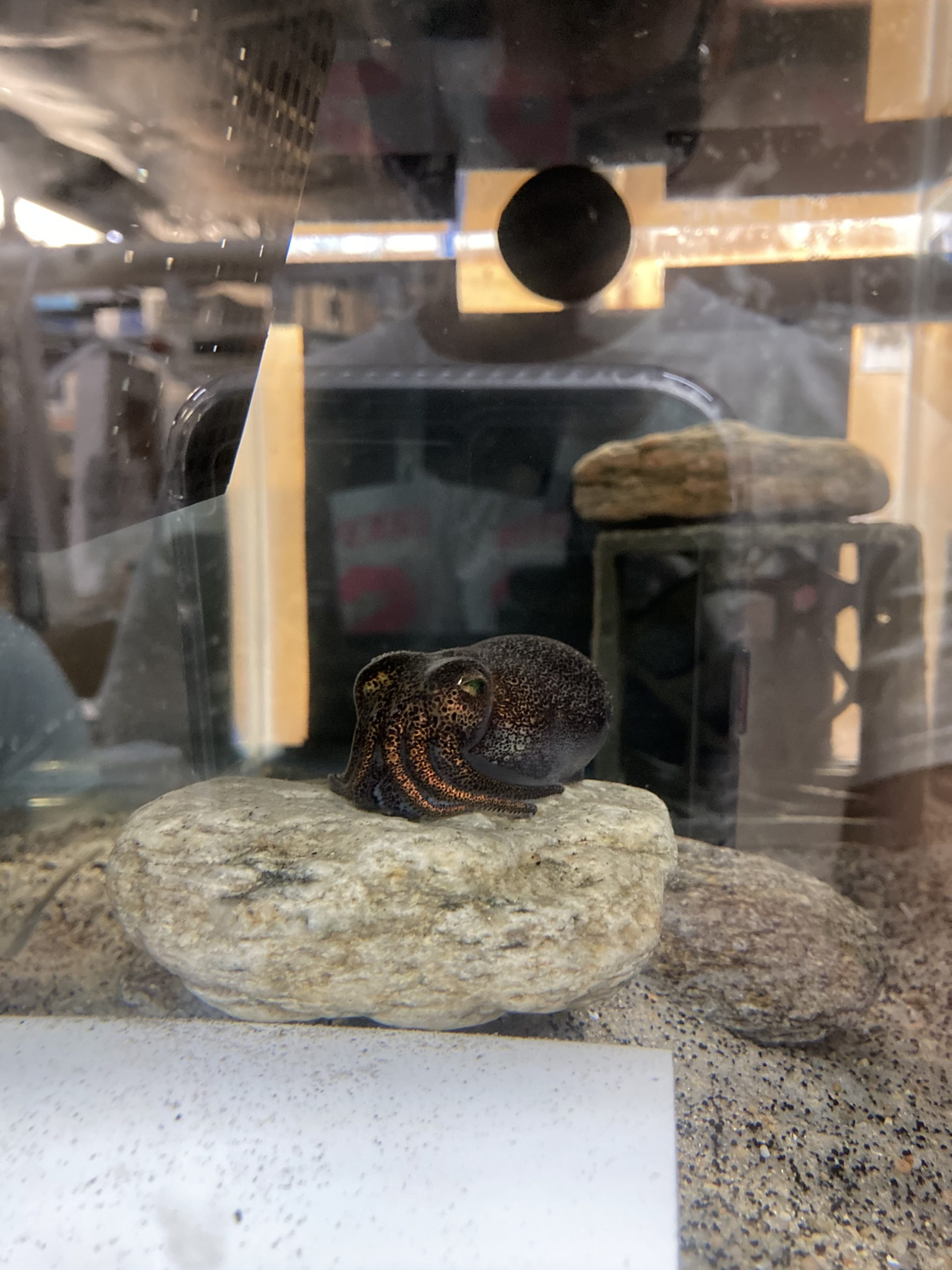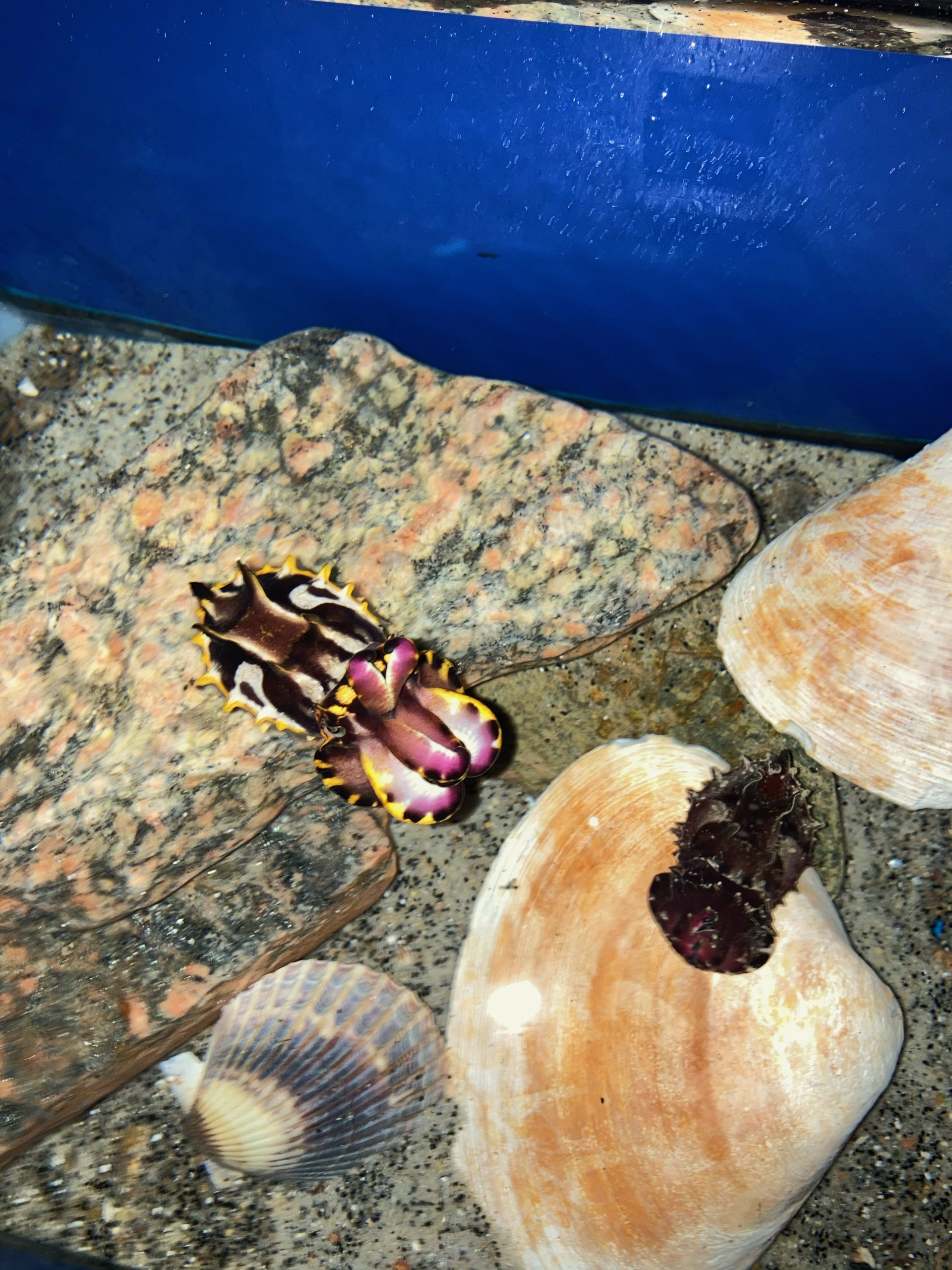It’s not every day you get the chance to work with cephalopods. That, however, is not the case for Northeastern students Sarah Beecy and Sonia van Stekelenborg.
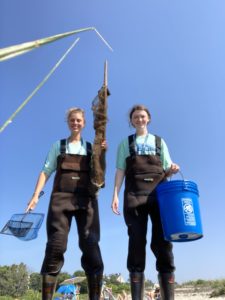
Sonia van Stekelenborg and Sarah Beecy collect local shrimp, the primary food source for many of the cephalopods in the area
Beecy, a third-year marine biology student, and van Stekelenborg, a third-year environmental science student, are currently on their first co-op as marine cephalopod aquarists at Marine Biological Laboratory (MBL) in Woods Hole, Massachusetts.
The MBL is a non-profit organization dedicated to scientific discovery, attracting researchers across all fields of marine biology to conduct research at their facilities. They have been a Northeastern co-op employer for ten years, providing a unique hands-on experience for numerous students during this time.
Coming from two similar yet varied educational backgrounds, both students had different approaches to their co-op search. Beecy spent countless summers vacationing on Cape Cod and cultivated a passion for the ocean during her time there.
“Back then, the idea of me ending up there [MBL] was just an exciting ‘imagine that’ kind of dream,” she says.
With the help of her co-op advisor, Emily Condon, Beecy secured an interview with MBL, reinforcing her desire to work there.
Van Stekelenborg’s journey towards this co-op was not as straightforward. With such a wide range of career options available under environmental sciences, she explains that she was hesitant to do her first co-op in marine biology.
“I envisioned myself doing an environmental science-related co-op such as conservation/restoration, clean energy, sustainability, etc. I’ve always loved marine biology, but I didn’t know that was an option for me,” says van Stekelenborg.
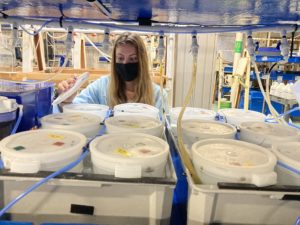
However, after her interview, her doubts disappeared, and she joined the team, eager to work in a hands-on research setting.
“I thought the opportunity was one-of-a-kind and exciting,” says van Stekelenborg.
Although van Stekelenborg had never worked with cephalopods before, during past experiences she did work in animal husbandry, vet clinics, and dog shelters.
Beecy and van Stekelonborg’s work contributes to the overall goal of the cephalopod program at the laboratory, which is to create the next model organism. Along with other co-ops from Northeastern, they are responsible for the caretaking of the cephalopods and the maintenance and upkeep of the mariculture systems.
“These are extremely intelligent animals, and some are very rare. Cephalopods that most people will never see in their lifetime have inked on me, and that’s something I never thought I would get to say,” says Beecy.
By working in teams with people from different academic backgrounds, labs, and research institutes, Beecy explains that they often share ideas based on previous classwork or work experiences, enhancing each other’s knowledge in various related subject areas. Not only does their day-to-day include caring for the cephalopods, but it also involves studying them for groundbreaking research purposes.
“Cephalopods are interesting for several reasons. For example, they have a huge nervous system, unmatched camouflage abilities, and the ability to edit their own RNA, making them amazing candidates for every field of study from neurology to robotics,” says Beecy.
In the upcoming weeks, the co-ops will have the chance to embark on independent research projects, meaning that they will either assist ongoing studies or design their own, making their experience all the more fulfilling.
As their co-op cycle continues, both students are grateful for the opportunity and have learned many about their future career goals.
“Field work has definitely become a stronger interest of mine,” says van Stekelenborg.
Beecy also looks forward to hands-on experience and hopes to pursue a master’s degree in marine biology as well as participate in Northeastern’s Three Seas program.
Knowing many of their peers are currently searching for a spring co-op, Beecy and van Stekelenborg offer valuable advice based on their own experiences.
“I think that everyone owes it to themselves to consider every opportunity given to them.
Northeastern provides you with lots of opportunities; you just must be receptive to them and willing to put in the work,” says Beecy.
Van Stekelenborg echoes Beecy’s sentiments and encourages fellow students to interview for roles even if at first they don’t seem like the perfect fit.
“Job descriptions don’t always do the job justice, and you can gain more insight from interviews. You never know; you might be surprised by what catches your eye,” says van Stekelenborg.
More than halfway through their co-op cycle, the two hope to absorb as much more knowledge as they can at MBL, even if it means getting “inked” a few more times.
Meet the cephalopods:
